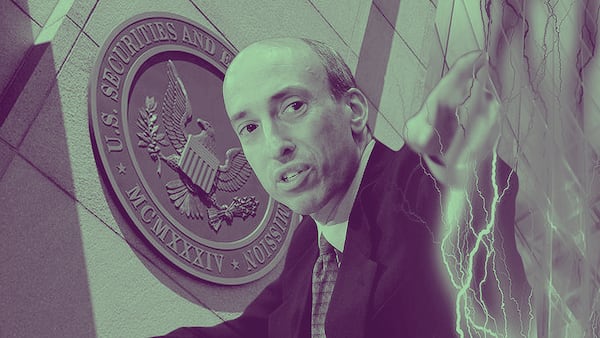- A Bank for International Settlements report largely dismisses DeFi as failing to fulfill its promise to be an alternative to TradFi.
- BIS advises authorities to impose more regulatory guardrails even as Wall Street firms race to offer Bitcoin products.
- BIS report marks shift in tone as institution loses patience with lack of development in crypto sector.
DeFi just lost the Bank of International Settlements.
For years, the BIS has respected the innovative potential of blockchain-based finance and efficiency of digital money. While skeptics such as Gary Gensler, the chair of the US Securities and Exchange Commission, and Senator Elizabeth Warren have sought to crack down on crypto, the BIS has welcomed the study of distributed ledger technology and the development of central bank digital currencies.
Yet in a report released this week, the BIS appears to be running out of patience with the sector.
“Crypto has so far failed to harness innovation to the benefit of society,” the 30-page report concludes. “Crypto remains largely self-referential and does not finance real economic activity.”
Amplified risks
Moreover, the BIS states that decentralised finance has failed to achieve its top goal — derisking finance.
Bitcoin and Ethereum, after all, were created to form the basis of a more equitable, transparent, and efficient alternative to traditional finance. After more than a decade, DeFi has only “amplified” financial risks, the BIS said.
“While DeFi and crypto for the most part replicate services offered by the traditional financial system, they can exacerbate known vulnerabilities,” the BIS reported stated. “Taken together, the key takeaways from this report suggest that crypto’s inherent structural flaws make it unsuitable to play a significant role in the monetary system.”
NOW READ: Global regulators fire warning shot that they’re about to kneecap DeFi
The BIS is important: Known as the central bank for central banks, the Basel, Switzerland-based organisation brings together the Federal Reserve, the European Central Bank, the Bank of Japan and dozens of other institutions to shape monetary policy.
Given the BIS’s influence, its conclusions may embolden regulators to take a harder line on crypto just as TradFi giants such as BlackRock, Fidelity, Citadel Securities and Charles Schwab are racing to capture marketshare in the asset class, especially in Bitcoin trading.
‘While DeFi and crypto for the most part replicate services offered by the traditional financial system, they can exacerbate known vulnerabilities.’
— Bank of International Settlements
In a key piece of analysis, the BIS said it was closely watching to see the level of “interconnectedness” between crypto and TradFi. Ever since the global financial crash of 2008, the interdependency of financial markets and products has been a major concern to central banks.
The BIS found DeFi’s level of interconnectedness with TradFi is not worrisome at this time, primarily because decentralised finance is so bedevilled by “operational risks” such as hacks, shutdowns, rug pulls and fraud that it has failed to garner mass market traction. Criminals stole more than $395 million from DeFi and crypto projects in the first six months of 2023, according to DefiLlama.
NOW READ: Digital euro is ‘not a conspiracy,’ says EU Commissioner
Then there’s the ongoing impact of speculation. “As growth is driven mainly by the speculative influx of new users hoping for high returns, crypto and DeFi pose substantial risks to — especially retail — investors,” the report said.
Positive role
For all their criticism, the BIS authors did highlight the positive elements of blockchain-based finance: “programmability and composability.” This is crypto-speak for the way digital assets and smart contracts can be coded to transmit value and data between users on the internet at any time. “Such systems are ‘always on,’ allowing for worldwide transactions 24 hours per day, seven days per week,” the report said.
That is crucial because tokenisation, the practice of converting a traditional security such as stocks or bonds into digital tokens, has become a hot proposition on Wall Street and in crypto.
Global banks and market infrastructure firms have been experimenting with blockchain for years, looking for greater efficiencies in their processes.
NOW READ: 24 central banks could have CBDC by 2030
Blockchain tech and securities tokenisation appear to offer the promise of “atomic settlement” — or instantly completing trades — a process that can take days in traditional securities markets.
“While crypto has offered some elements of genuine innovation, these can be replicated or embedded in the safer and more trusted traditional financial system,” the report said.
Guardrails
Still, the BIS advised authorities to implement guardrails like restrictions, regulation, or outright bans to safeguard consumers.
It said regulatory standards body the Financial Stability Board has already proposed a framework that governments could look to for the regulation of crypto.
John Salmon, a partner at Hogan Lovells, told DL News earlier this year that regulators have three options when it comes to DeFi.
Outright ban
“One is to ban it outright,” he said. “This is quite difficult in practice, but you could certainly mandate custodial wallets or exchanges not to deal with DeFi, preventing on-ramping. Second, you could say that DeFi can only be provided through a regulated intermediary and limited to a specific set of sophisticated or high net worth investors.”
But it’s the third way that Salmon sees regulators taking: they could try and regulate the software itself, or the company that develops the software.
NOW READ: They’re coming for the DeFi devs: ‘You can’t just decide that the law doesn’t apply to you’
“There are indications suggesting that is where we are going to end up,” Salmon said. “We are seeing policy makers and regulators around the world trying to think about it in that context, particularly where the developers have some ongoing control of the protocol.”
Have a tip about crypto regulation or another story? Contact me at joanna@dlnews.com.



